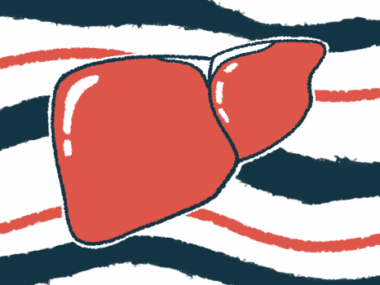Antibiotic may ease IBD related to primary sclerosing cholangitis
Treatment with vancomycin led to changes in disease activity markers
Written by |

Four weeks of treatment with vancomycin, a common antibiotic, lowered inflammatory bowel disease (IBD) in people with primary sclerosing cholangitis (PSC), data from a small clinical trial suggests.
The beneficial changes in markers of disease activity as well as in certain gut bacteria seen with vancomycin were reversed after treatment was stopped, however.
“Our findings suggest that vancomycin could offer a new therapeutic option for patients with this challenging combination of IBD and autoimmune liver disease,” Mohammed Nabil Quraishi, PhD, a gastroenterologist and the study’s first author at the University of Birmingham in the U.K., said in a university press release. “While these results are preliminary, they provide a strong foundation for further research.”
The study, “Open label vancomycin in primary sclerosing cholangitis-inflammatory bowel disease: improved colonic disease activity and associations with changes in host-microbiome-metabolomic signatures,” was published in the Journal of Crohn’s and Colitis.
PSC is an autoimmune disorder wherein inflammation in the tubes, or bile ducts, that carry the digestive fluid bile out of the liver to the intestines can result in liver scarring that affects its function and may eventually necessitate a liver transplant.
Most people with PSC develop cooccurring IBD, an umbrella term for disorders that cause immune-mediated inflammation of the gastrointestinal tract that include ulcerative colitis and Crohn’s disease. People with preexisting IBD are at increased risk of developing PSC.
Why PSC and IBD are so closely connected isn’t fully known, but evidence suggests PSC can lead to disruptions in the normal bacteria in the intestines, called the gut microbiota, which may set the stage for IBD. The bowel disease tends to ease in PBC patients given vancomycin, which is an oral antibiotic for treating some types of bacterial infections.
Lowering IBD severity in PSC
Quraishi and his colleagues conducted a small clinical trial (NCT05376228) in which 15 people, age 18 and older, with PSC-related IBD were treated with 125 mg of vancomycin four times a day for four weeks. All the patients had active colitis, a form of IBD that affects the colon and is most commonly associated with PSC.
IBD activity was determined through clinical assessments, blood and stool samples, and biopsies of the colon.
The study’s main efficacy goal was to assess the proportion of patients who achieved clinical remission based on several measures, including colitis, stool frequency, and rectal bleeding. Secondary efficacy goals included changes in some of these measures, levels of fecal calprotectin in stool (a marker of IBD), and blood levels of liver and bile duct damage.
After a month on the antibiotic, 12 of the 15 patients (80%) were in remission from IBD and all 15 of them showed healing of the mucus-covered layer of the colon. Levels of fecal calprotectin and liver damage markers also decreased. However, after a month off the therapy, both IBD activity and levels of liver damage markers and fecal calprotectin approached those seen at the start of the study.
Stool samples were analyzed to see how vancomycin treatment affected the patients’ gut microbiota. The researchers found that some types of gut bacteria became more abundant, whereas others were less abundant after treatment. These changes mostly went away after patients stopped taking vancomycin.
To the researchers’ surprise, the antibiotic reduced the number of bacteria known to make short-chain fatty acids (SCFAs), molecules with anti-inflammatory properties. The researchers had conjectured that, if IBD was getting less severe, it would be because SCFA levels were increasing, not decreasing.
“The reported shifts in microbial communities challenge the long-held paradigm that colitis remission must be associated with an increase in SCFA concentration,” the scientists wrote.
One explanation is that vancomycin may exert its beneficial effects through mechanisms that aren’t related to SCFAs. Supporting this idea, the researchers found the antibiotic led to increases in certain other bacteria that exerts anti-inflammatory effects, along with changes in bacteria associated with metabolizing bile acids, the main components of bile.
“This suggests that the observed reduction in [IBD activity markers is] likely driven by these bile acid-related mechanisms,” the researchers wrote. “Further investigation is necessary to clarify these pathways.”
The researchers said they hope to use their preliminary findings as the basis of larger, placebo-controlled studies to further explore the potential of vancomycin in PSC-related IBD and over the long term.



